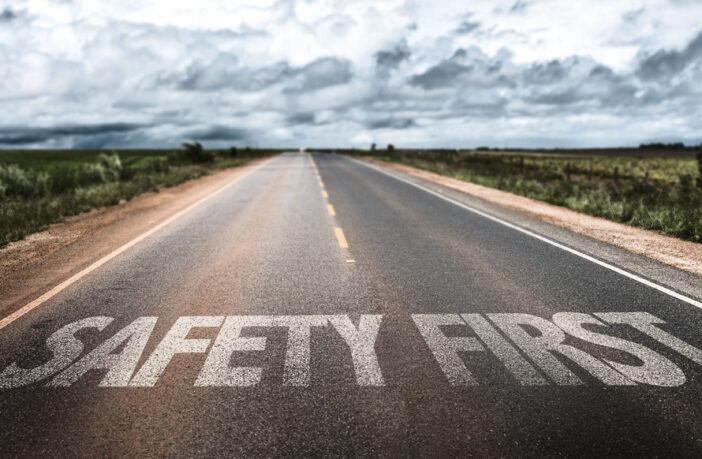Driving comes with serious responsibilities. Every time you step into your car, you’re making decisions that affect your safety and that of others around you. The choices you make on the road can determine whether you reach your destination safely or face a potential accident. To help create a more predictable environment for everyone on the road, we’ve created a little cheat sheet for you.
1. Avoid distractions
Staying focused is one of the most important things you can (and always should) do behind the wheel. Modern life offers plenty of distractions, and none are more tempting than your phone. It’s easy to check a message or answer a call while driving, but research shows that using a mobile device significantly increases the risk of accidents – almost tenfold. In fact, over half of young drivers admit to using their phones while behind the wheel. It only takes less than a second to miss a hazard or lose control. If you need to take a call or send a text, pull over safely to do so.
Many drivers forget how dangerous even a moment’s distraction can be – until it’s too late.
2. Obey speed limits
Respect speed limits at all times. Speeding, especially in areas like residential zones or near schools, can have serious consequences. The UK is increasingly rolling out 20mph speed limits in urban areas, recognising how much slower speeds can reduce the severity of accidents and aid the traffic flow.
Even if you’re running late, speeding won’t help – it will only put you and others at greater risk. Take a deep breath and remind yourself that reaching your destination a few minutes late is always better than never arriving at all.
3. Maintain your vehicle
A well-maintained car is more reliable and less likely to let you down. Regular checks on your tyres, brakes, and lights can prevent accidents caused by vehicle failures. Take your car for regular services.
Don’t ignore any recall notices from the manufacturer, as this could leave you with faulty parts that put your safety at risk – not to mention voiding your insurance in case of an accident. Having a robust car insurance policy is also vital to ensure you’re fully covered in case something goes wrong.
4. Stay prepared
Driving in adverse conditions demands extra attention. During heavy rain, fog, or snow, the road becomes more hazardous as visibility and traction decrease. Slow down and increase your distance from other vehicles. This gives you more time to react to any unexpected situations, like a sudden stop or skid.
Pay attention to road quality as well. Potholes and uneven surfaces are common, especially in the UK, and they can cause accidents or damage your vehicle. Take extra care, particularly if you’re driving in areas with poorly maintained roads.
5. Lead by example
Finally, consider how your driving impacts others. Setting a good example for those around you, especially young or inexperienced drivers, can contribute to safer roads for everyone. Safe driving habits – like using indicators, not tailgating, and respecting other road users – make a big difference. The UK is even considering changes to driving laws, such as introducing a Graduated Driving Licence for new drivers to reduce the risk of accidents. If you’re experienced, your behaviour can guide others to follow safer practices.
Road safety doesn’t just start when you get behind the wheel; it’s an ongoing process of staying alert, being prepared, and making good choices at every turn. Stay safe out there and remember: every decision you make counts.





